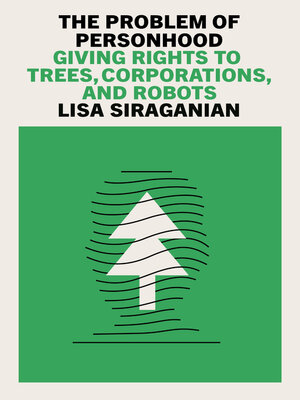The Problem of Personhood
ebook ∣ Giving Rights to Trees, Corporations and Robots
By Lisa Siraganian

Sign up to save your library
With an OverDrive account, you can save your favorite libraries for at-a-glance information about availability. Find out more about OverDrive accounts.
Find this title in Libby, the library reading app by OverDrive.



Search for a digital library with this title
Title found at these libraries:
| Library Name | Distance |
|---|---|
| Loading... |
Should nonhumans have rights in law and politics? How personhood for corporations and everything else exploits us today.
Over the last twenty-five years, the concept of personhood has become essential—to debates about providing corporations human privileges, limiting access to abortion, giving algorithms free speech protections, releasing elephants from zoos, and permitting trees the standing to sue. The Personhood Problem reveals the unsettling connections between these imagined persons and their sought-after rights, in a bracing and nuanced examination of the versions of personhood proliferating today. Synthesizing the political and philosophical debates on personhood, the book uncovers the unexpected, disturbing, and dangerous alignments between them. Telling the true and engaging story of the oldest version of “fictional” personhood—the corporate one—this book helps us rethink that history and its use, or threat, to us now.
Over the last twenty-five years, the concept of personhood has become essential—to debates about providing corporations human privileges, limiting access to abortion, giving algorithms free speech protections, releasing elephants from zoos, and permitting trees the standing to sue. The Personhood Problem reveals the unsettling connections between these imagined persons and their sought-after rights, in a bracing and nuanced examination of the versions of personhood proliferating today. Synthesizing the political and philosophical debates on personhood, the book uncovers the unexpected, disturbing, and dangerous alignments between them. Telling the true and engaging story of the oldest version of “fictional” personhood—the corporate one—this book helps us rethink that history and its use, or threat, to us now.







